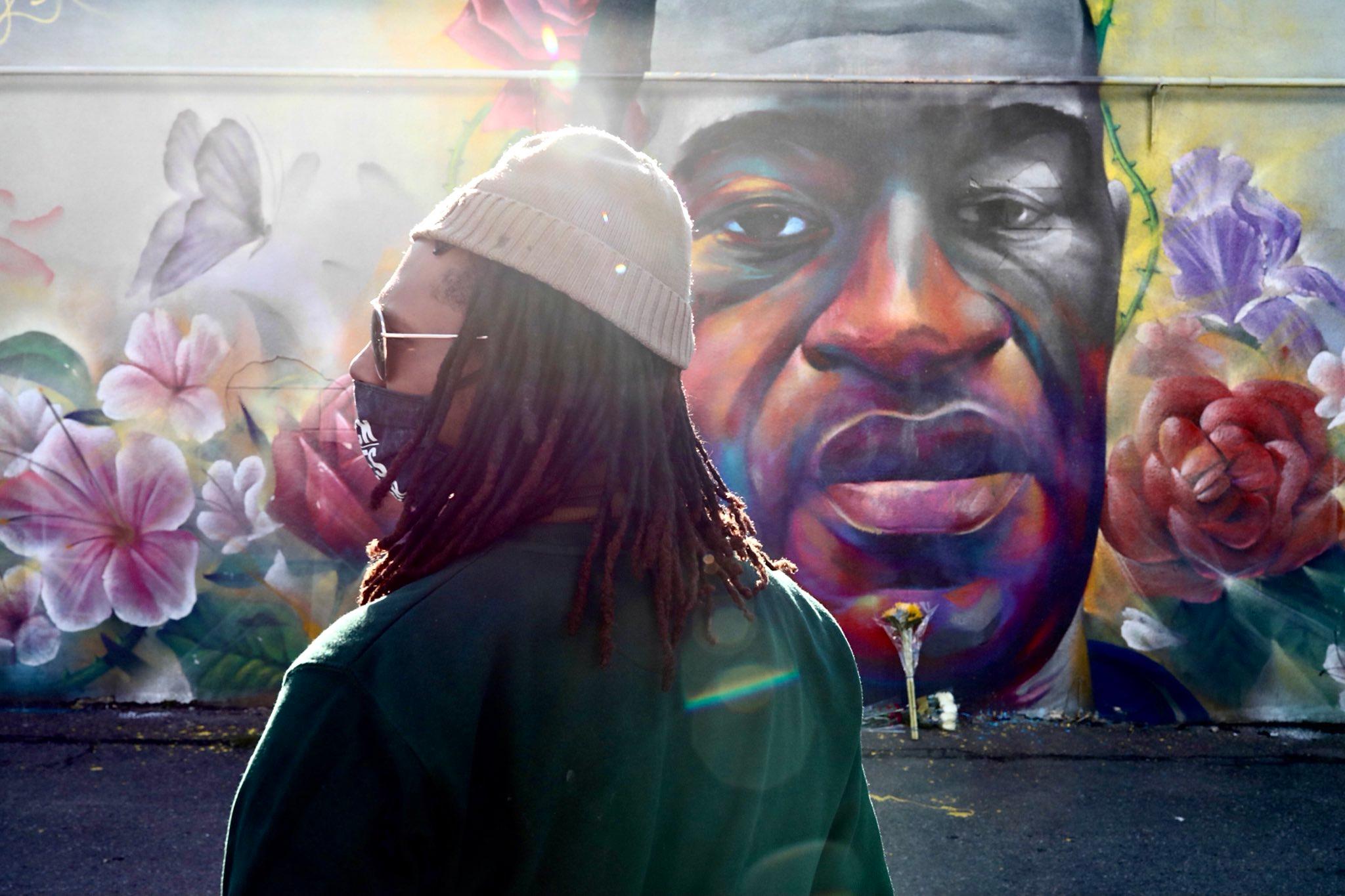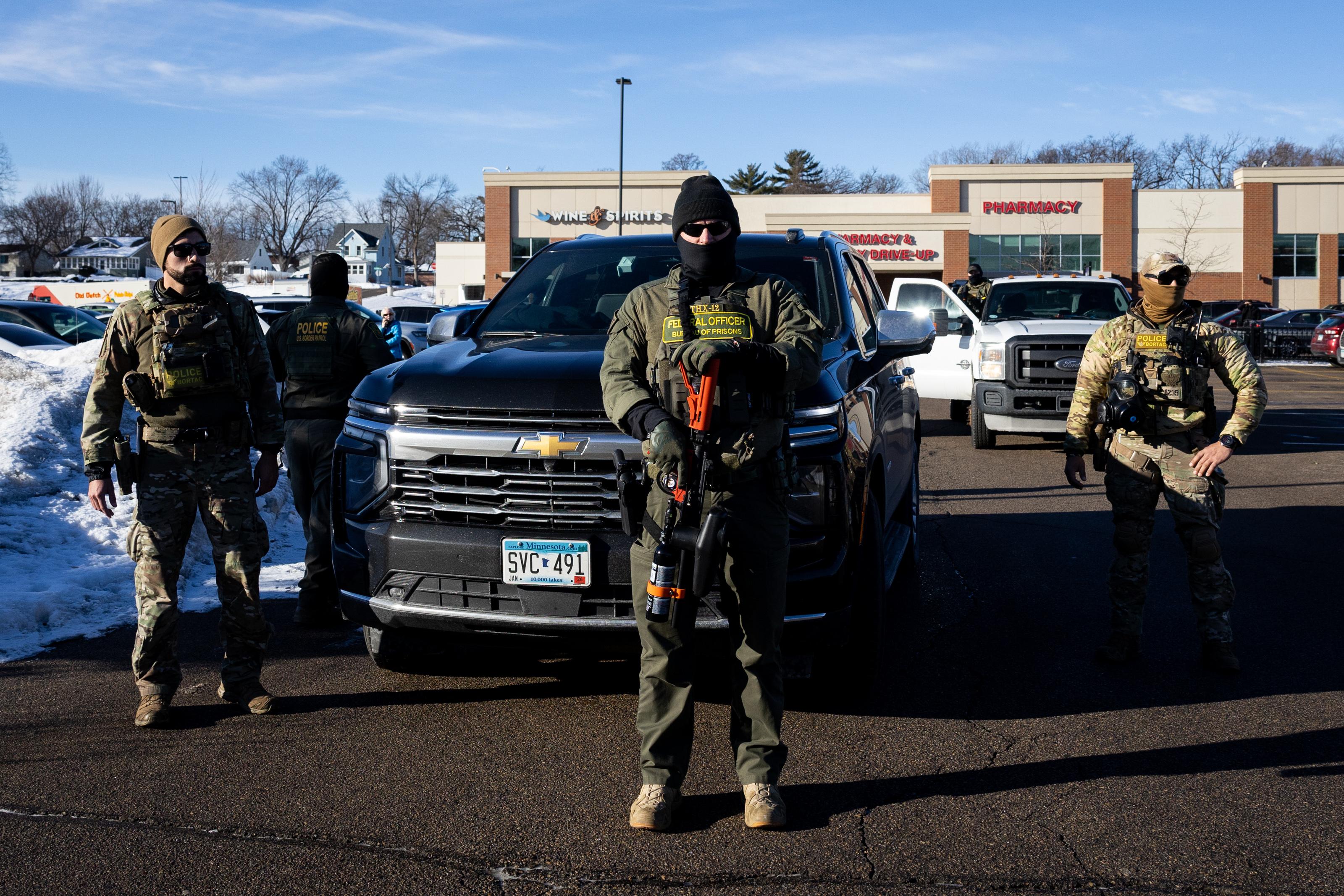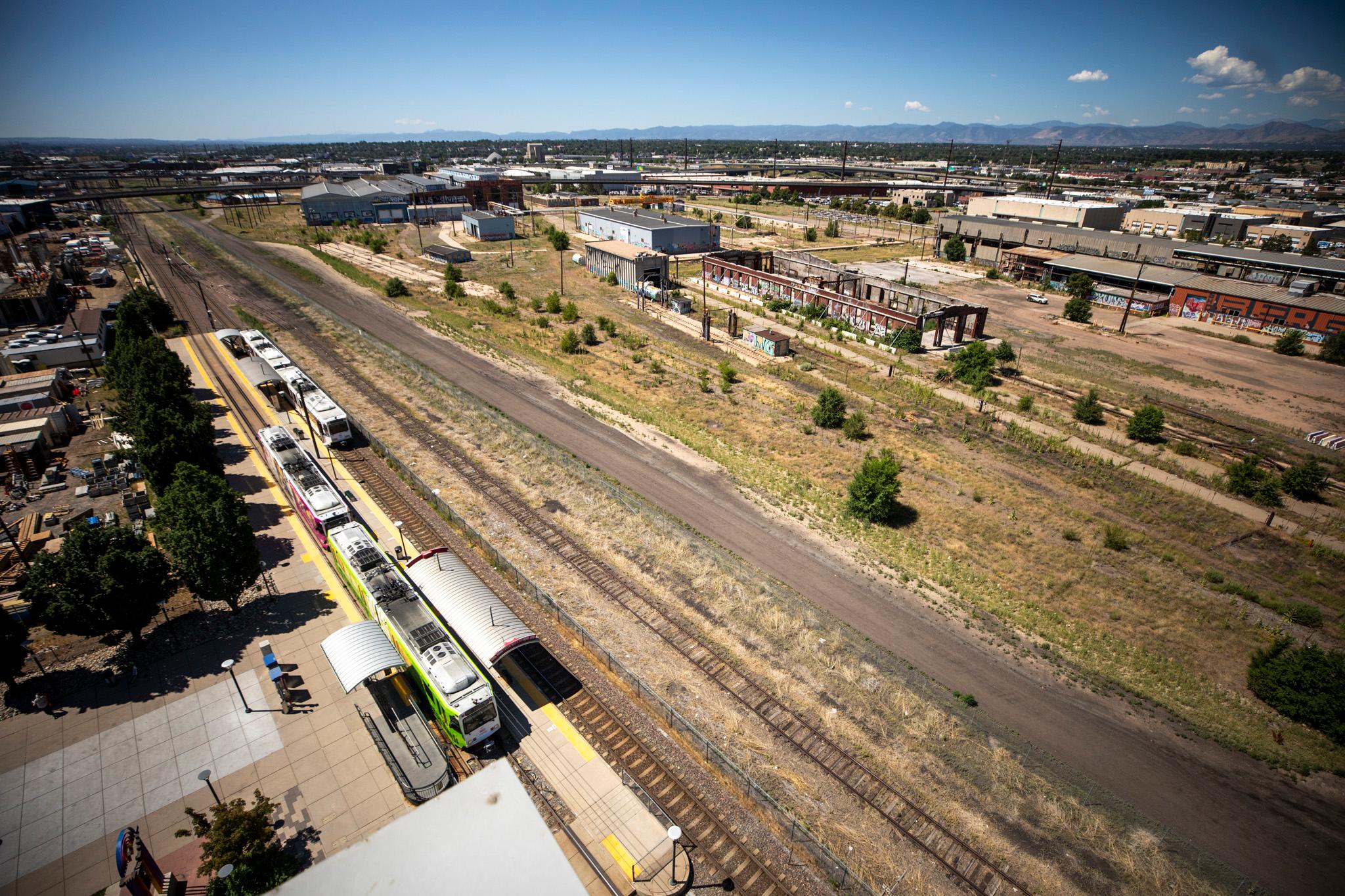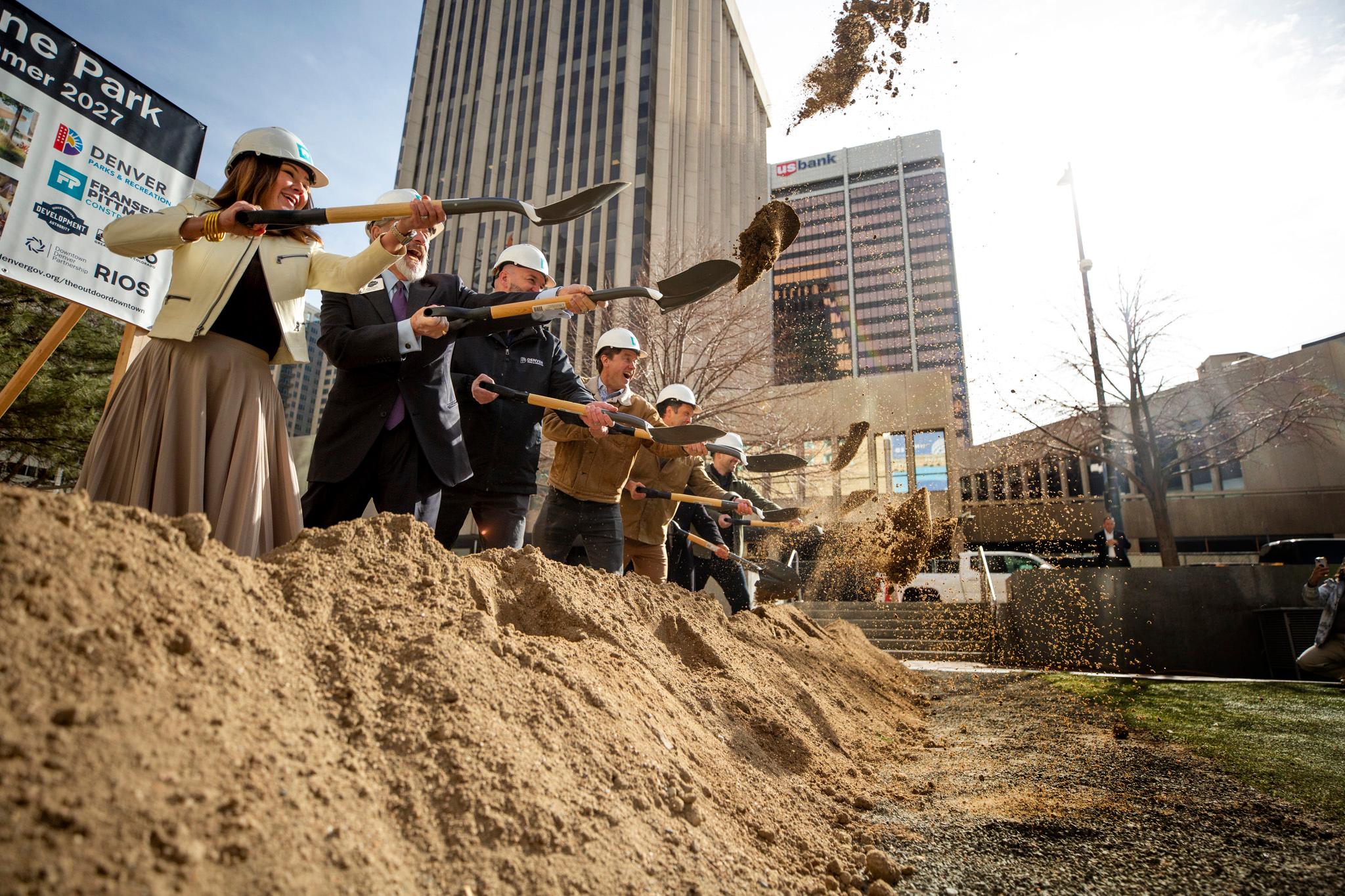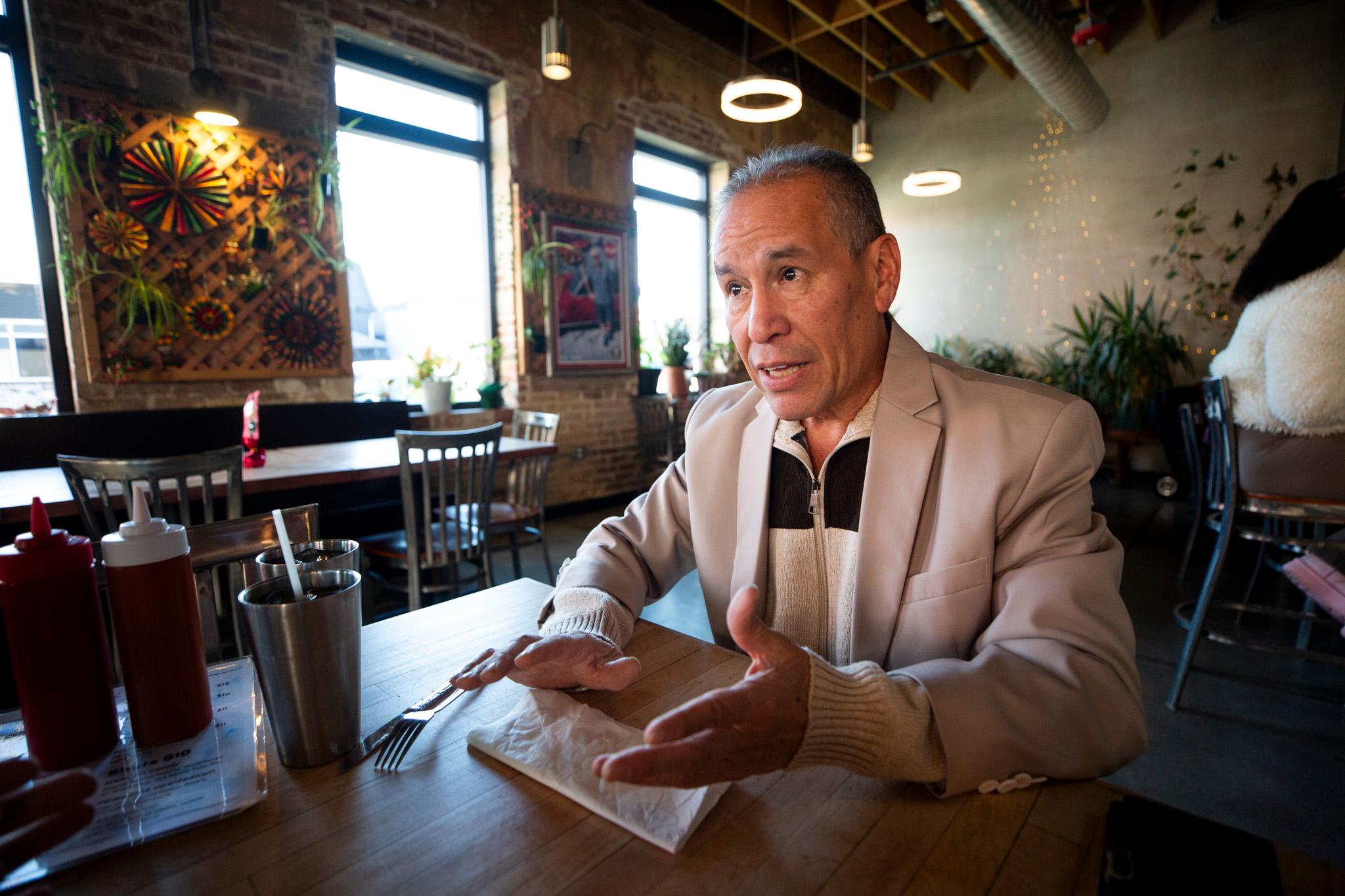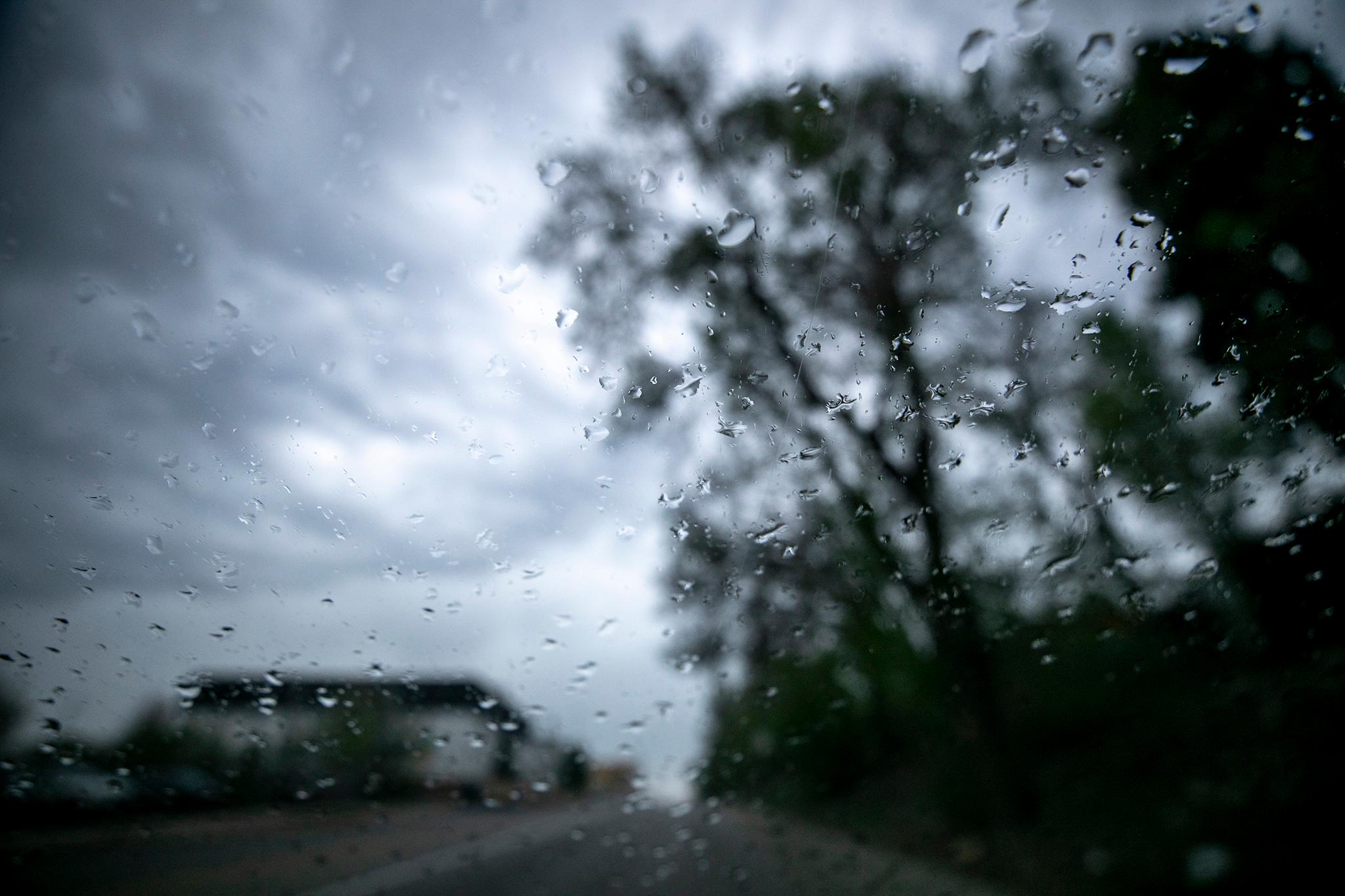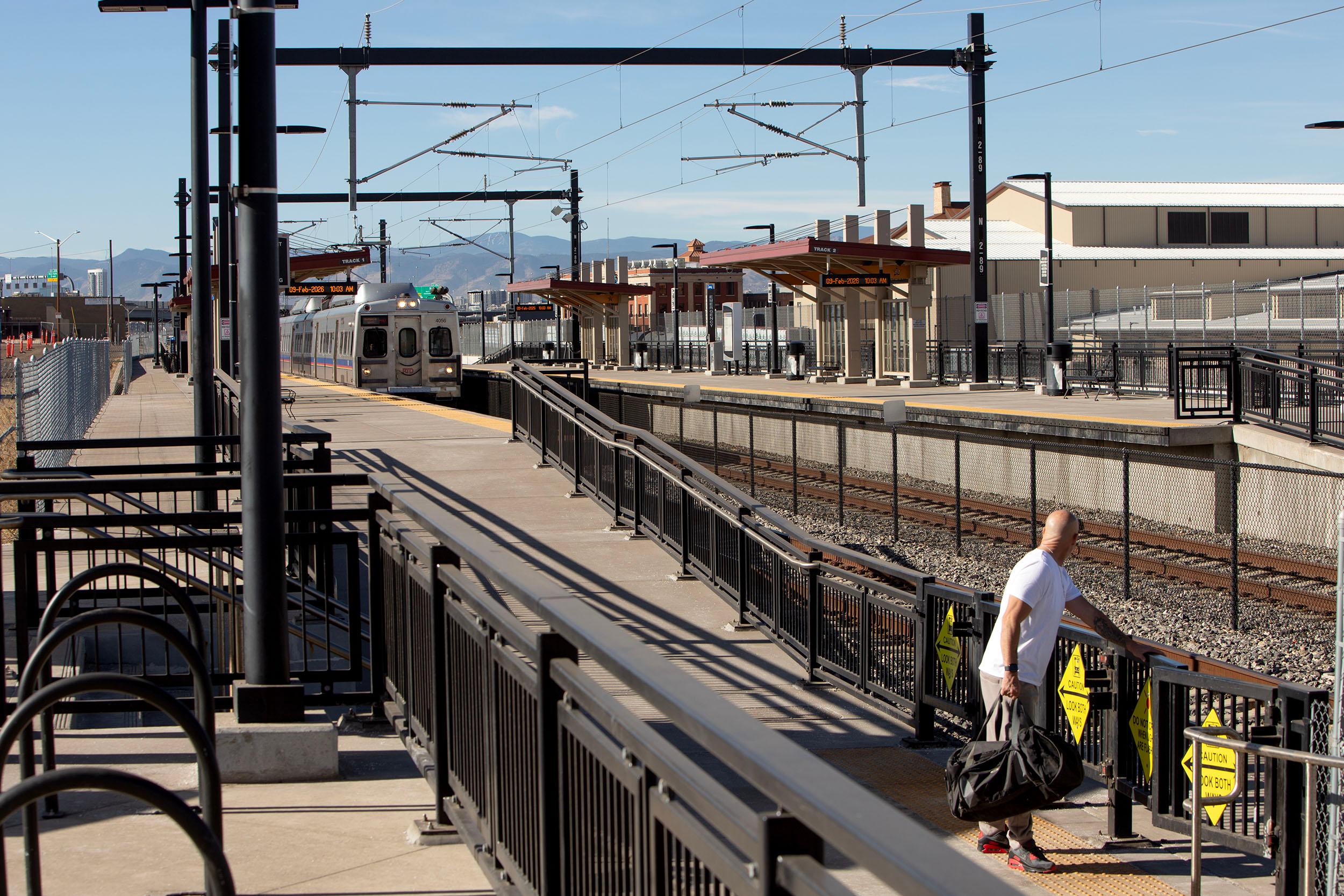Denver joined the world in protest on May 28, 2020, when the city’s residents first responded to the murder of George Floyd by Minneapolis police. Thousands of demonstrators filled the Capitol lawn, then spilled into downtown and, eventually, onto the interstate. Police responded with tear gas and pepper balls.
Few could have guessed it was the start of months of clashes with police, that the city would pay out millions in legal settlements — or that the next five years would bring a wild swing that saw the racial justice movement embraced nationwide but then rejected by President Donald Trump’s second administration.
Denverite spent days and nights covering the 2020 protests. This month, we reached out to people we met to see what has changed — and what hasn’t — in the five years since.
‘The government painted this picture of promise’
Aubrey Rose walked at the front of the very first march five years ago, ahead of thousands heading west through downtown. He stood out, thanks to the crisp, dark military jacket he wore beneath the upside-down flag slung over his shoulder.
"I swore an oath to defend our Constitution against all enemies, foreign and domestic," he told us at the time. "And right now we're coming across some domestic enemies. And so I'm out here doing my duty: peaceful protest."
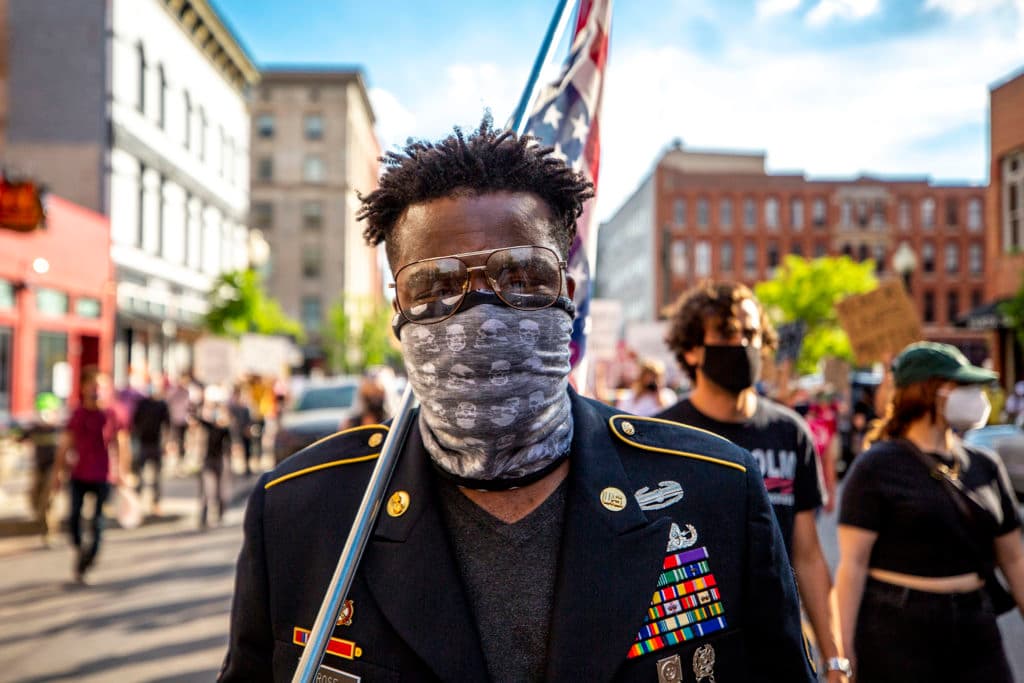
When we spoke to Rose this week, we learned this was a moment to vent his anger about much more than police violence. He’d struggled to get military benefits that he felt were denied to him — a quest that would later include a 2023 arrest and an ongoing federal criminal case.
Rose left the U.S. Army in 2017, he said, after an explosive device he was disarming detonated and left him physically and cognitively impaired. The years that followed were an ongoing battle to get the care he’d earned.
“I was fighting with the VA and other government agencies about the benefits that I was supposed to receive and the health care that I was supposed to be getting. And it was just not happening,” he said. “I gave up, and then I just started just wasting through life.”
The march was an opportunity to vent his frustrations with a society that often feared him and the government that he felt had abandoned him.
“It gave me the will to fight for myself,” he said. “I had just forgotten who I was and what I was capable of and what I've accomplished.”
The marches felt like they were moving the nation, he said. He worries that progress has been rolled back in the years since. The movement for social justice may have led to an “overcorrection” of societal norms, he told us, which resulted in a political blowback in President Donald Trump’s re-election.
“The government painted this picture of promise, of change, of ‘never again.’ And the minute they could, they retracted that. It’s like the same thing with my benefits,” he said. “I am thankful for this country. I am proud to have served this country. I'm proud that my friends died in the service to this country. But that pride is being taken away by the actions of the people in power. And then that's disgusting.”
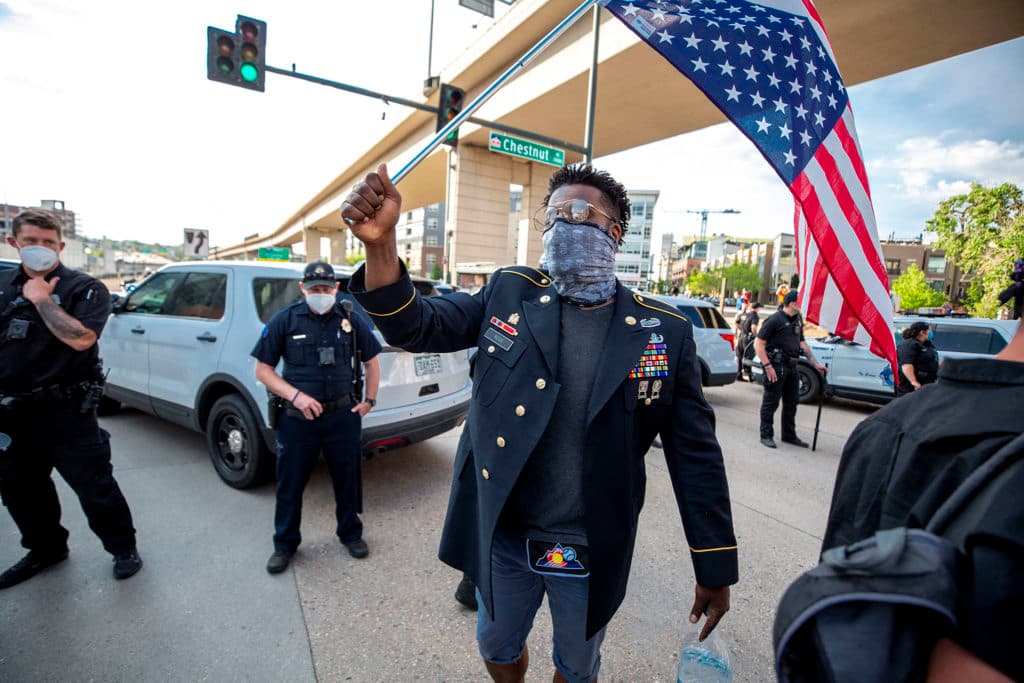
Rose moved to Florida a few years later, where he continued to fight with the VA — and where his life spiraled out of control. He eventually lost his housing, he said, because he couldn't manage without benefits, and moved to Connecticut to live with family.
In 2023, that frustration allegedly led him to make threats. He was accused of showing up to a Hartford field office of a member of Congress while "wearing a tactical vest,” apparently armed with two knives and demanding help with his case, according to the U.S. Attorney for the District of Connecticut.
He was charged with threatening government officials. He was accused of making threats in person and over email, including a statement that he would “PICK IT UP FOR MYSELF,” referring to a rifle, if his problems weren’t resolved. The federal criminal case is ongoing.
Rose said it was an expression of how badly he needs help, and how long he's been ignored in asking for it.
‘That's all being undone right now’
Topazz McBride is a licensed psychotherapist who works with parents who have lost children to gun violence. In 2020, she found herself drawn to rallies that fit her expertise. We met her at a gathering in Aurora centered on Black mothers and the peril their children face in America.
McBride grew up abroad, so she hadn’t experienced American protests until the aftermath of Trayvon Martin’s killing in Florida in 2012. In the early years of #BlackLivesMatter, loud, visible actions were crucial to creating a movement, she said.
“Protesting became the primary means at the time to really stand up and to make it known that we would not continue to be silent in the midst of all of that,” she said. “Being able to be visible and to be vocal, and to have a platform to say that we matter. We more than matter — to say that we will not stand for this, that this is unacceptable and that we will fight.”
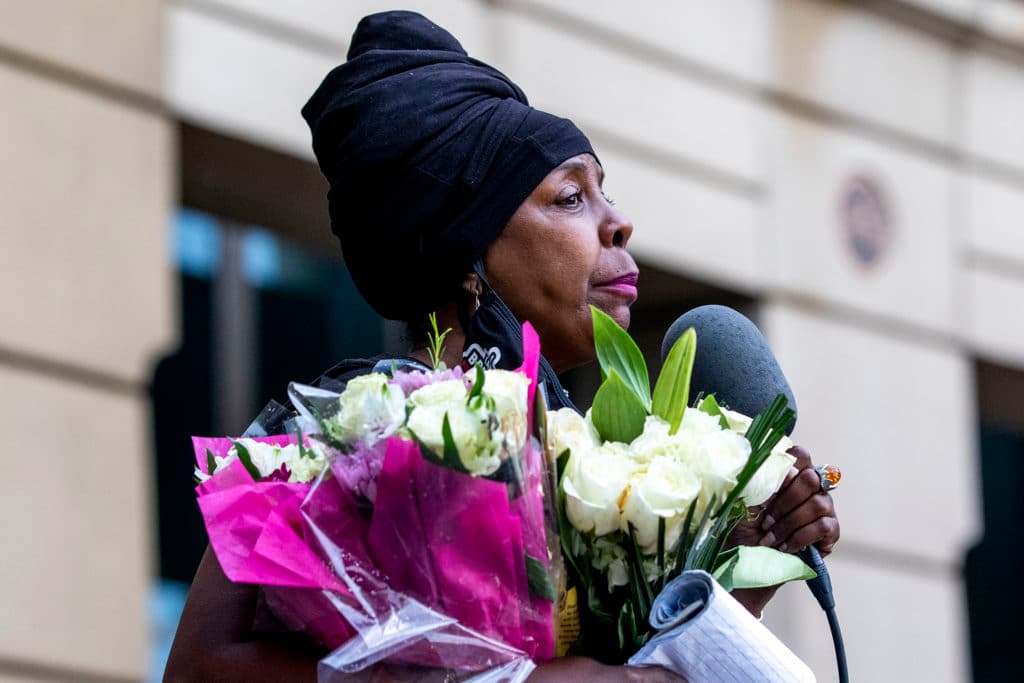
In 2020, she worried that many protesters were bored spectators looking for a break from COVID lockdowns — not seeking real change. Some were looking for excuses to break windows and fight police, she said.
Still, she said that summer’s activism was needed, and provided a blueprint for a future era of resistance.
“It was empowering,” she said. “It's unfortunate that now there's been such a turn …. That's all being undone right now.”
More than ever, McBride said she’s sure the government will not solve life-and-death problems like police violence.
“There will not be the justice that we seek. So it's going to have to come from the people,” she said, “building our own power sources and sources of influence and showing up for families, showing up for people who need us. We have to provide and empower from within.”
Still, she said she’ll stay involved in politics.
“We have some pretty important midterm elections coming up, and I think that if we're going to have any hope that we're really going to need people to show up to the polls,” she said. “But again, it goes back to what I said: where my faith is, is in the people. People have to show up. We have to do our part.”
‘Do I believe it can happen again? Absolutely’
Candice Bailey, an organizer who was often at the center of protests in Aurora in 2020, said she’s felt the rollback Rose and McBride described.
In a practical sense, the protest leader and one-time Aurora City Council candidate said efforts to prevent police brutality haven’t been as effective as people hoped. She said a major police-reform measure that Colorado’s legislature passed in 2020, for example, hasn’t been well implemented by lawmakers and lacks oversight it needs to work correctly.
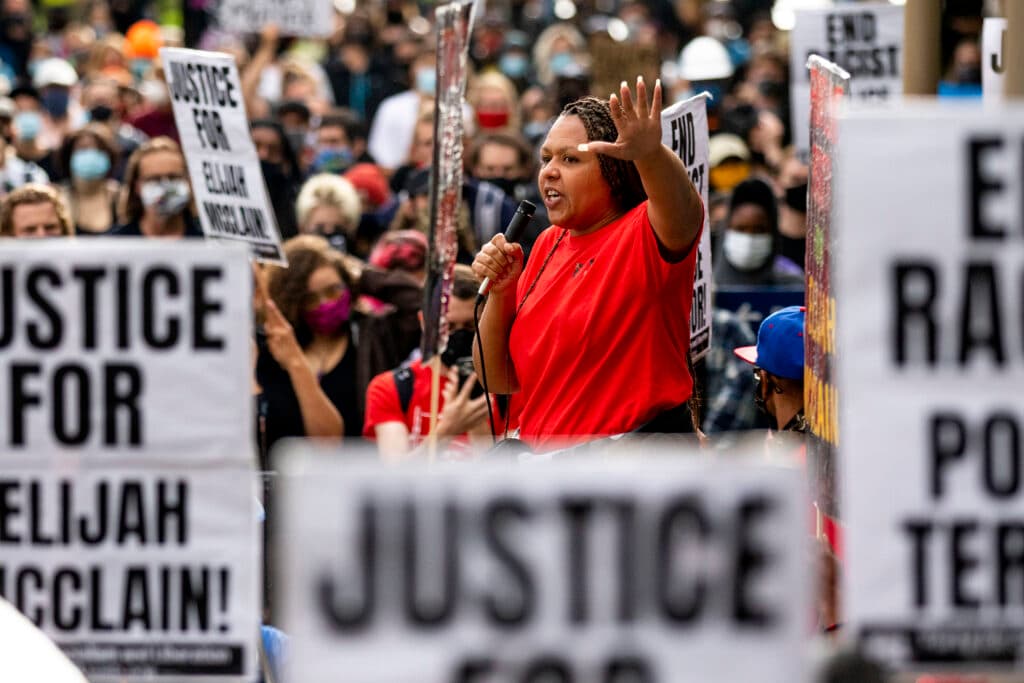
More broadly, she said Trump’s re-election has discouraged people from speaking out. And the 2020 protests have been on her mind a lot lately, especially as she’s processed Trump’s threats to arrest and deport activists.
“Everything that had been done in that timeframe, 2019 to 2021, essentially has now been weaponized. It has become a way for the Republican Party, namely, to come back and create retribution,” she told us.
Even during the protests, participants were worried about surveillance and arrests. Five protest leaders were detained that summer in tactical-style arrests; some faced decades in prison before their cases were dropped. There was also talk about FBI informants who appeared in protest circles to entrap organizers.
“I can't say it has stopped me,” Bailey added.
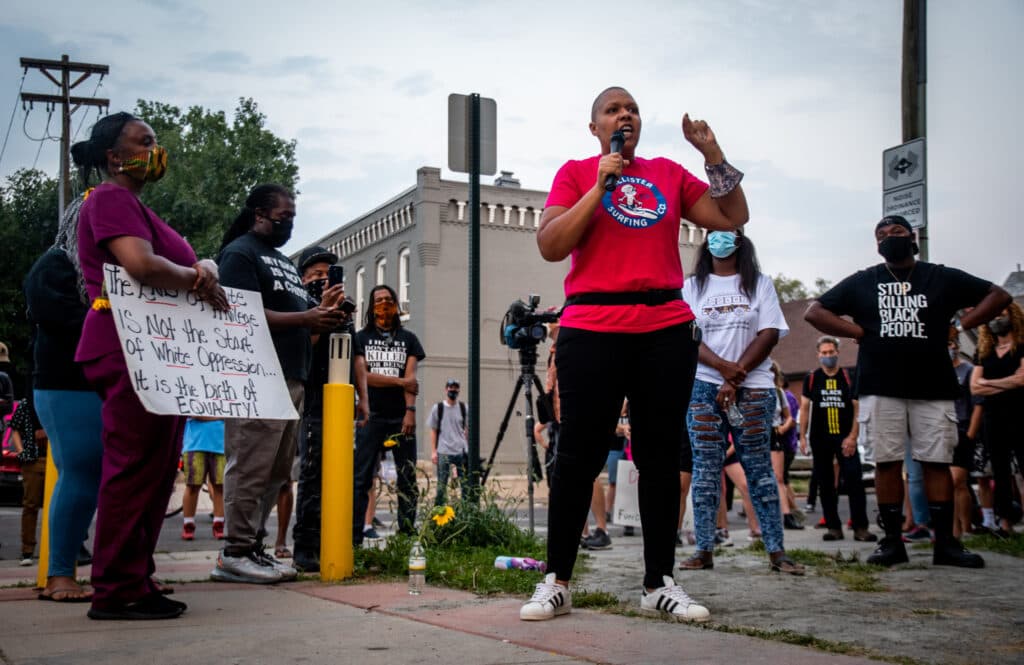
At the same time, she said Trump’s heavy hand is generating collective anger that is already building the next movement.
“Do I believe it can happen again? Absolutely. As we watch people losing their jobs, we are watching people who are afraid to go to their job because they're afraid they could be deported,” she said. “We are watching the culmination of all the proper ingredients to come into place for things to happen in a manner that happened during the Civil Rights Era.”
‘It was a moment bigger than everybody’
Larry Thompson Sr. was new to town in 2020 when regular marches began in the city. He was eager to get involved.
He had moved from Mississippi. Denver offered both political and economic opportunities.
“I'm from a small town of 60 people in Mississippi and I wanted to be the youngest to ever run for the president of the United States of America,” he told us.
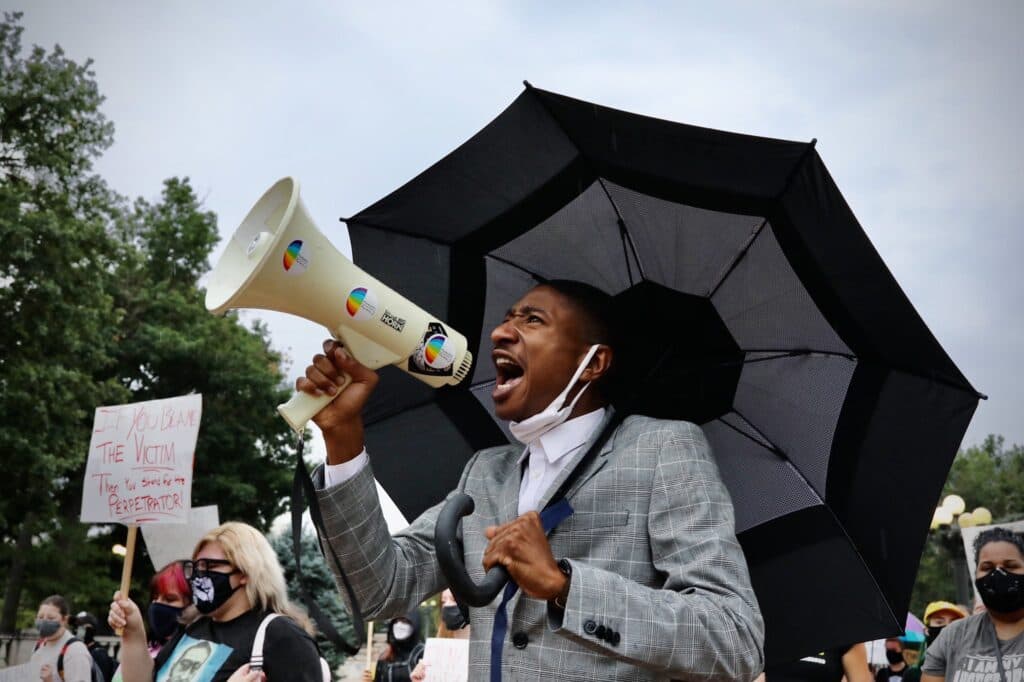
His optimism hit a wall early on. He said he learned Denver’s activism scene can be guarded, due in part to surveillance concerns.
“When I first got there, they were calling me an informant,” he remembered. “I was in there leading so fast, and nobody knew me.”
But he said it didn’t take long to find his place. By the time we met him, during a march in August, he was carrying a bullhorn at the front of a crowd.
That rally was about police violence, but it was also meant to force society to recognize centuries of racist oppression.
“I felt like what happened was beautiful, powerful. It was a moment bigger than everybody,” he said. “Everybody wanted to play a role so they could be valuable or feel valuable in that moment.”
Thompson said 2020’s activism had lasting impacts because it reinfused racial justice into politics and encouraged sympathetic candidates, like himself, to run for office. Thompson unsuccessfully ran for the statehouse last year.
But the full political impact of that moment, he predicted, may still be hidden.
“It's just planting seeds,” he said. “In the next five to 10 years is when we're going to see the blossom of what developed.”

